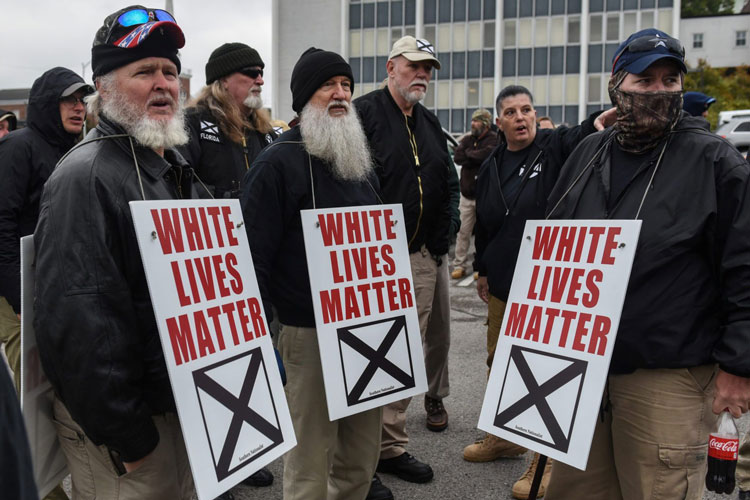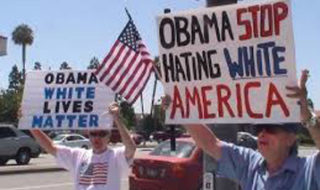Welfare backlash tied to white fear of declining status
Racial resentment found to fuel opposition to government anti-poverty programs

May 30, 2018

Study ties white fear of changing status, particularly after the election of Barack Obama, to welfare opposition.
White Americans’ fear of losing their socioeconomic standing in the face of demographic change may be driving opposition to welfare programs, even though whites are major beneficiaries of government poverty assistance, according to new research from UC Berkeley and Stanford University.
While social scientists have long posited that racial resentment fuels opposition to such anti-poverty programs as food stamps, Medicaid and Temporary Aid to Needy Families, this is the first study to show the correlation experimentally, demonstrating a causal relationship between attitudes to welfare and threatened racial status.
“With policymakers proposing cuts to the social safety net, it’s important to understand the dynamics that drive the welfare backlash,” said study lead author Rachel Wetts, a Ph.D. student in sociology at UC Berkeley. “This research suggests that when whites fear their status is on the decline, they increase opposition to programs intended to benefit poorer members of all racial groups.”
The findings, published today in the journal Social Forces, highlight a welfare backlash that swelled around the 2008 Great Recession and election of Barack Obama.
Notably, the study found anti-welfare sentiment to be selective insofar as threats to whites’ standing led whites to oppose government assistance programs they believed largely benefit minorities, while not affecting their views of programs they thought were more likely to be of advantage to whites.
“Our findings suggest that these threats lead whites to oppose programs they perceive as primarily benefiting racial minorities,” said study senior author Robb Willer, a professor of sociology and social psychology at Stanford University.
It is particularly timely in the face of conservative Republican lawmakers’ efforts to cut federal spending by putting social safety net programs like Medicaid and the Supplemental Nutrition Assistance Program, formerly known as food stamps, on the chopping block.
In the study, researchers tracked a shift in attitudes to welfare around 2008 when Obama, America’s first black president, was elected, and the country was suffering from a major recession whose reverberations continue to impact tens of millions of whites and non-whites alike.
According to census figures, 43 million Americans lived in poverty in 2016. Whites comprised 43 percent of Medicaid recipients, 36 percent of food stamp recipients and 27 percent of the beneficiaries of Temporary Aid to Needy Families.
“Welfare programs are race-blind in that all low-income Americans are eligible to receive them,” Willer said. “So opposition to them, especially during tough economic times, threatens the same safety net that helps whites, as well as minorities, endure economic hardship.”
HOW THEY CONDUCTED THE STUDY
In three separate studies, researchers analyzed nationally representative survey data of over 7,000 adult American men and women. In addition, they conducted two experiments with 400 participants via Amazon’s Mechanical Turk, an online marketplace.
First, an examination of attitudes to race and welfare in a nationally-representative survey found that whites’ racial resentment rose in 2008, the same year of the Great Recession and election of Barack Obama, suggesting that perceptions of increased political power among minorities were leading whites to sense a threat to their group’s status. At the same time, researchers discovered, whites’ opposition to welfare increased relative to that of minorities’.
Next, researchers conducted an experiment in which participants were shown one of two graphs highlighting different aspects of U.S. population trends: One emphasized a stable white majority, and the other emphasized the declining white population in the U.S. White participants who saw information highlighting a decline in the white population reported heightened racial resentment and opposition to welfare programs. And, when asked how they would trim the federal budget, they recommended larger cuts to welfare.
In the third experiment, researchers found that when whites saw a threat to their economic advantage over minorities, they were more likely to want to cut social safety net programs, but only if those programs were portrayed as primarily benefiting minorities, not if they were portrayed as benefiting whites.
“Overall, these results suggest whites’ perceptions of rising minority power and influence lead them to oppose welfare programs,” Wetts said.